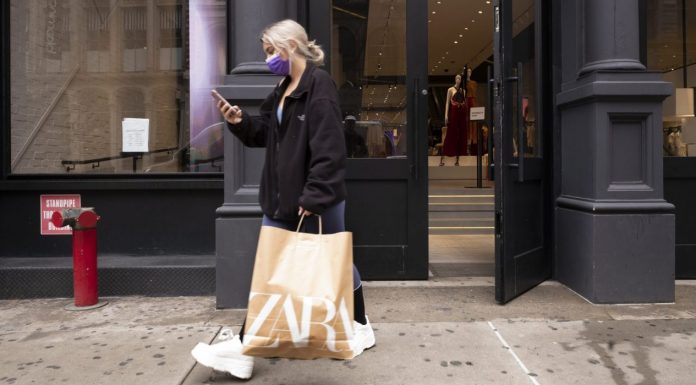(Headline USA) Former president George W. Bush was often maligned by the Left during his presidency (before being lionized by them as a RINO traitor) for his poor economic stewardship.
But contrary to what the history books and mainstream media narratives dictate, Bush presided over a remarkably robust economy for much of his presidency, even while spending some $2.4 trillion on wars in Iraq and Afghanistan.
All that changed after 2006, when Democrats reclaimed both chambers of Congress, installing Rep. Nancy Pelosi, D-Calif., and former Sen. Harry Reid, D-Nevada, as party leaders.
The infamous midterm “thumpin'” may have been a repudiation of Bush’s foreign policy, but it was also an ominous warning sign about the economic slowdown that lay ahead.
A gradual dip in consumer confidence all culminated with the bursting bubble in September 2008, by which point it was clear that then-Sen. Barack Obama, D-Ill. would coast to victory over the late Sen. John McCain, R-Ariz.
The consumer-confidence index during the so-called Great Recession never regained its Bush-era peaks until Obama was gone and the Trump era brought new tax cuts and deregulation of the financial sector.
But like Bush, Trump was marred by a suspiciously timed crisis—the coronavirus—that led to a plunge in early 2020.
While the pandemic recovery has seen the economic outlook creep back up, with many businesses that survived now poised to reopen and ease earlier restrictions, the CCI data has not cooperated as it should have.
Despite the artificial buoys of stimulus checks and near-zero interest rates (which the Federal Reserve with have to address soon in order to combat skyrocketing inflation) recent economic indicators have suggested that the rate plateaued in April and ticked down slightly in May.
The Conference Board, one of the independent economic forecasters that tracks CCI data, reported Tuesday that its consumer confidence index fell to 117.2 from April’s 117.5 reading.
Analysts, however, continued trying to paint a rosy picture of a robust Biden economy, noting that the measure was still as high as it has been since the pandemic hit in March 2020.
“After rebounding sharply in recent months, U.S. consumer confidence was essentially unchanged in May,” said Lynn Franco, senior director of economic indicators at The Conference Board, according to a press release.
“Consumers’ assessment of present-day conditions improved, suggesting economic growth remains robust in Q2,” Franco claimed. “However, consumers’ short-term optimism retreated, prompted by expectations of decelerating growth and softening labor market conditions in the months ahead.”
In addition to acknowledging Biden’s disheartening Q1 job numbers—a factor directly attributable to Democrats’ stimulus guarantee of $300 extra per week to those collecting unemployment—Franco also noted the inflation fears.
Already, a rising consumer-price index has led to severe pain at the gas pump and in the supermarket, which inevitably will cause many Americans to dial back their luxury purchases.
“Consumers were also less upbeat this month about their income prospects—a reflection, perhaps, of both rising inflation expectations and a waning of further government support until expanded Child Tax Credit payments begin reaching parents in July,” Franco said.
“Overall, consumers remain optimistic, and confidence should remain resilient in the short term, as vaccination rates climb, COVID-19 cases decline further, and the economy fully reopens,” she claimed.
Nonetheless, it is worth closely watching the CCI as one of the leading indicators of another 2008-style economic crash as the rising inflation takes a bite out of any residual stimulus nest-eggs.
Biden’s looming tax hikes—which he claims will target only the most wealthy—will nonetheless have a trickle-down effect on small businesses, which could impact hiring even as the floundering economy struggles to resurrect itself.
Earlier this month, the Commerce Department reported that retail sales in the U.S. flattened out in April after soaring in March, when many Americans received those government checks and boosted their spending.
Contrary to what the past may signal, economists have continued to claim that rising confidence should bolster overall economic growth as consumers, who account for 70% of economic activity, spend more as lockdown restrictions are eased or abandoned altogether in many places.
The present situation index, based on consumers assessment of current business and labor market conditions, rose to 144.3 from 131.9.
The expectations index, based on consumers’ short-term views for income, business and the job market, fell to 99.1 in May, from 107.9 in April.
Adapted from reporting by the Associated Press

